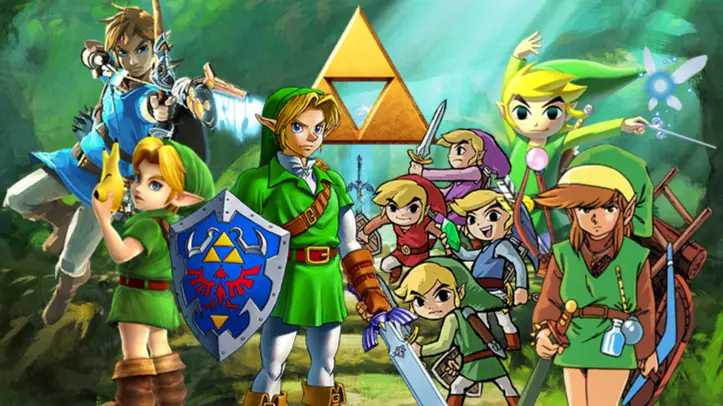
34 years ago today, Nintendo released The Legend of Zelda, and one of gaming's most beloved, well-respected, and influential franchises was born. For over three decades now (bloody hell), the continuing adventures of Link have provided us with some truly unforgettable moments.
Whether laying down the template for open world games in 1986, perfecting 3D adventure games in 1998, or completely destroying genre expectations in 2017, Zelda titles are often ambitious, inventive, and rarely deliver anything other than excellence... but not every Zelda is created equal.
What follows is a definitive ranking of every "mainline" Zelda title, based on years of scientific research and laborious study of each game. And by that, I mean I put them in order from worst to best based on my own opinion and then ran it by the rest of the GAMINGbible team, who didn't really disagree. Like I said, definitive.
Triforce Heroes - 3DS, 2015
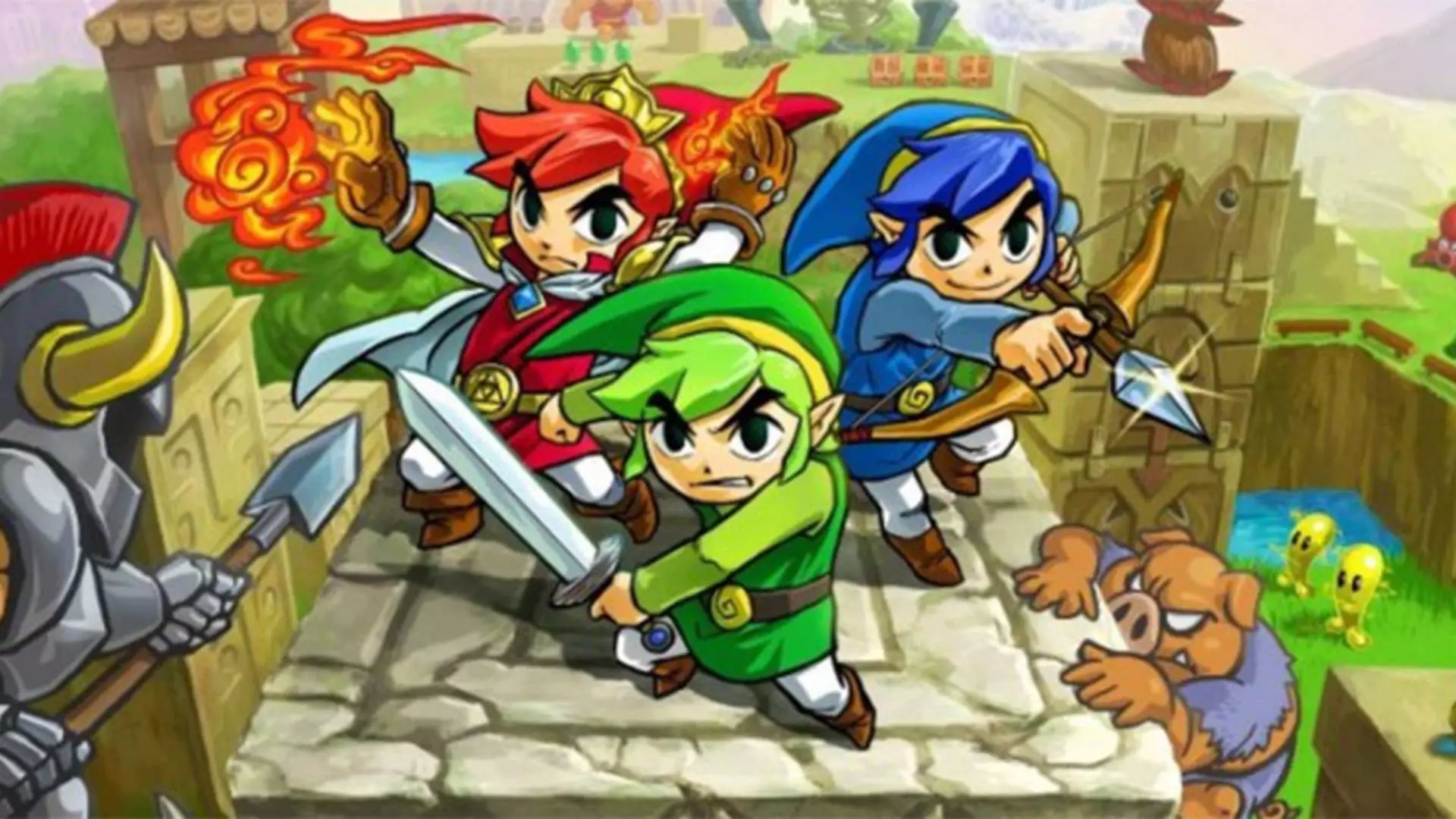 Nintendo
Nintendo

Even the 'worst' Zelda game of the bunch isn't a particularly bad one - just kind of... meh. The biggest crime Triforce Heroes commits is wanting to try something new with the established formula. Unfortunately, where this deviation from the norm worked for A Link Between Worlds and Breath of the Wild (more on those later), this 3DS title suffered from middling multiplayer mechanics which came at the expense of traditional exploration and puzzle solving.
The Adventure of Link - NES, 1987
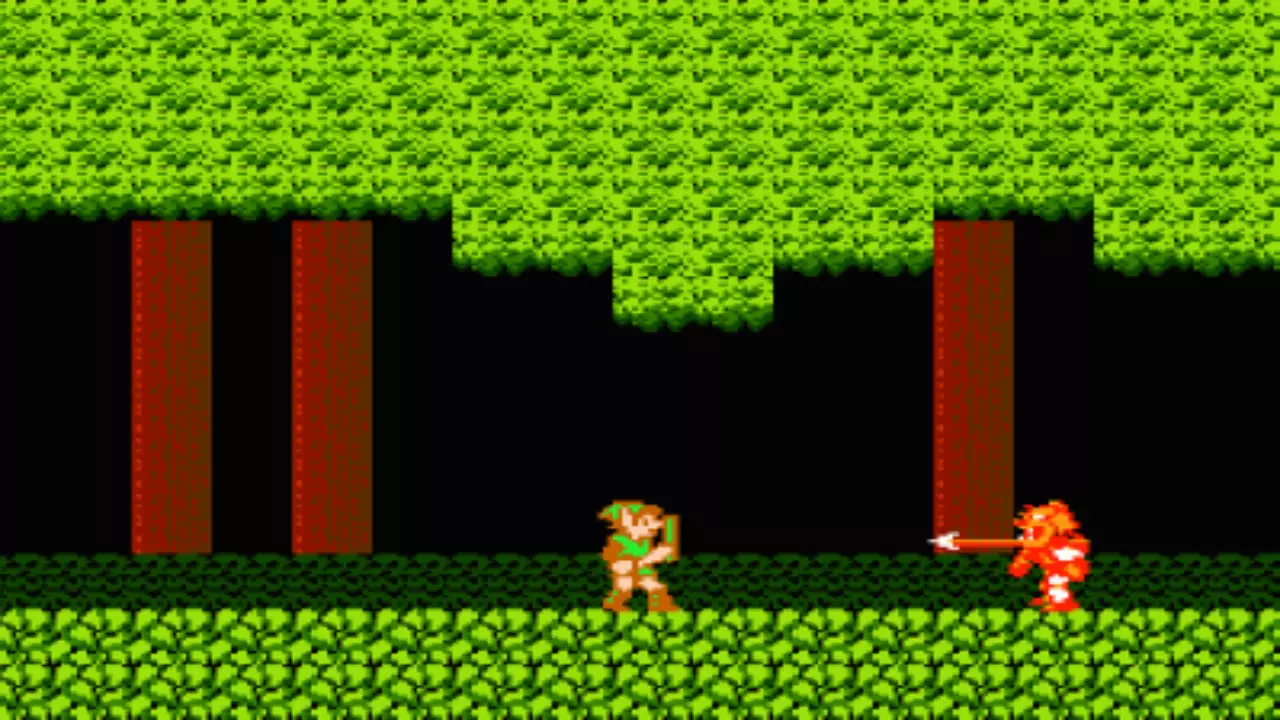 Nintendo
Nintendo

The very first Zelda sequel opted to shake things up in a big way. Largely abandoning the top-down adventuring and open world that made its predecessor such a hit, The Adventure of Link opted for a more action-oriented side scrolling RPG.
Advert
This in itself wasn't a problem. No, the reason most don't look back on Zelda II as fondly is because it's punishingly, blisteringly, needlessly difficult. Some games, like Dark Souls, can be hard without feeling unfair. Zelda II is just pointlessly cruel - and has aged horrendously as a result.
Four Swords Adventures - GameCube, 2004
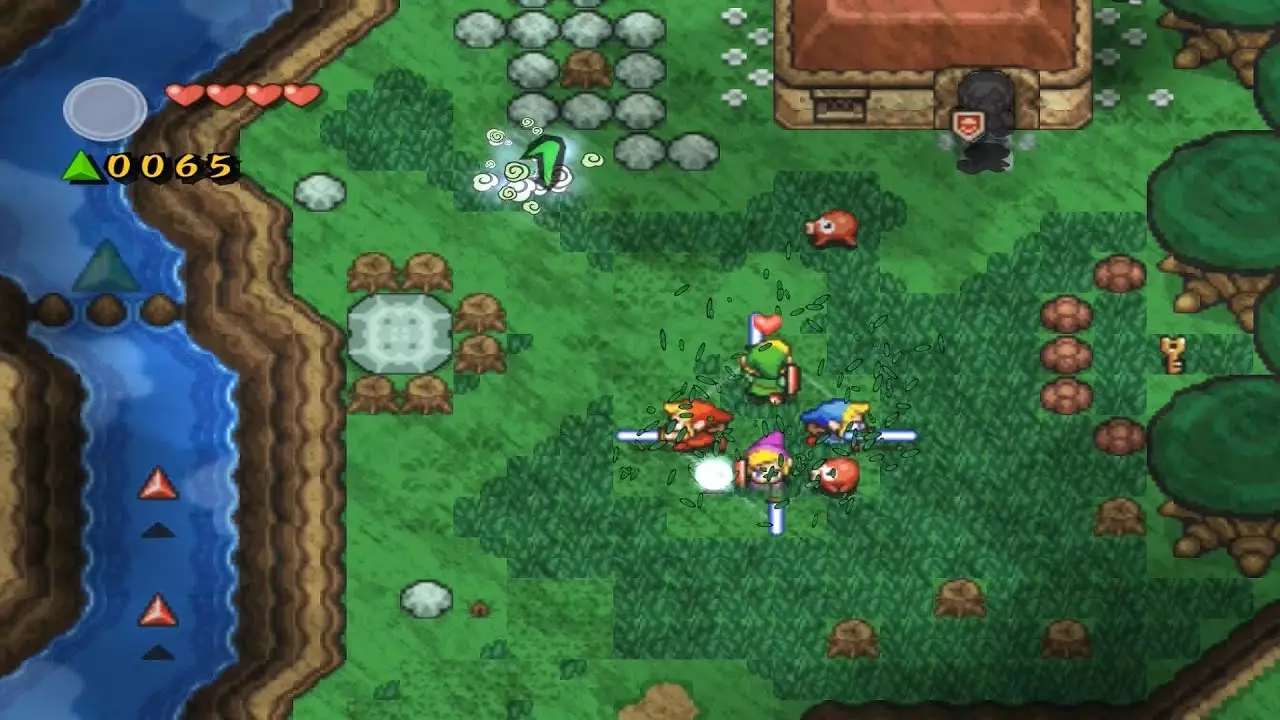 Nintendo
Nintendo

Another multiplayer experiment from Nintendo, Four Swords Adventures is a touch more successful than Triforce Heroes. This is largely because the four-player adventure felt a little more like a traditional Zelda experience with multiplayer added in. Open world exploration is still sorely lacking though, stripping away some of the inherent magic of the franchise.
Spirit Tracks - DS, 2009
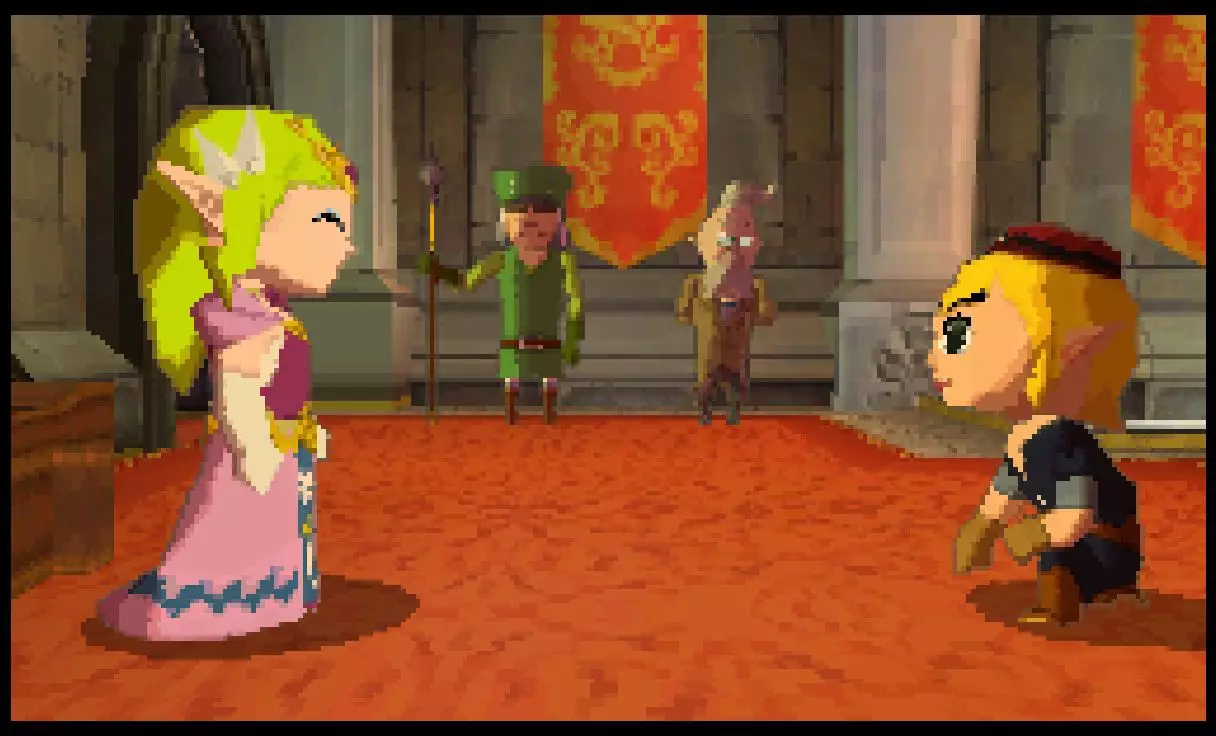 Nintendo
Nintendo

In a time where Zelda games were starting to receive a lot more criticism for holding the player's hand as they explored, it was a little ironic that Spirit Tracks literally put players on rails as they traveled Hyrule by train. Ask any commuter; trains are the worst.
Advert
There was a lot to enjoy when it came to Spirit Tracks of course. The touch screen made for some incredibly smart puzzles and boss battles, while having Zelda along for the ride as a (sometimes) playable companion was a nice touch. Just a shame about those bloody trains.
Skyward Sword - Wii, 2011
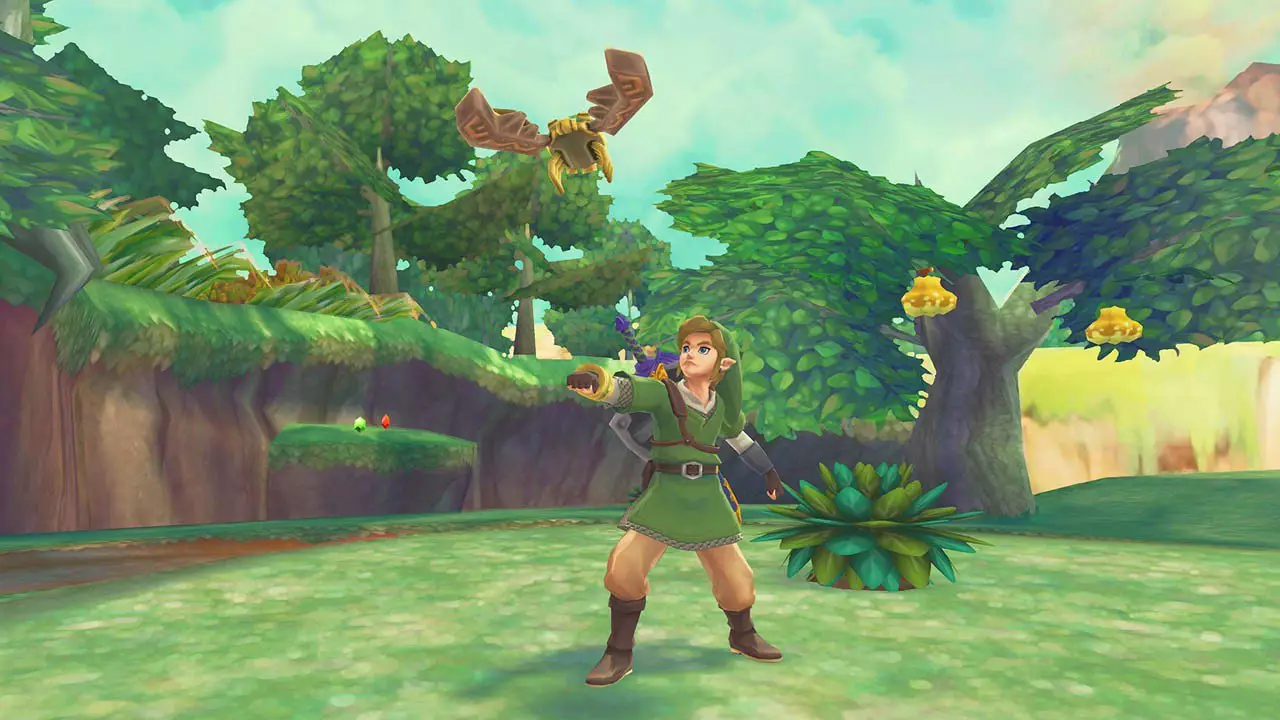 Nintendo
Nintendo

Look, I like Skyward Sword an awful lot. It's gorgeous, has a brilliant story, and the enhanced motion controls worked brilliantly... for me, anyway. It also has some brilliant dungeons, packed with smart puzzles - arguably some of the best in the series.
Advert
Unfortunately, it also remains the most linear Zelda game. A sparse overworld and focus on moving through dungeon-like areas even when you weren't in a traditional dungeon stripped Skyward Sword of that thrilling sense of adventure and discovery that goes hand in hand with a new Zelda. A great game... but not an especially memorable Zelda.
The Legend of Zelda - NES, 1986
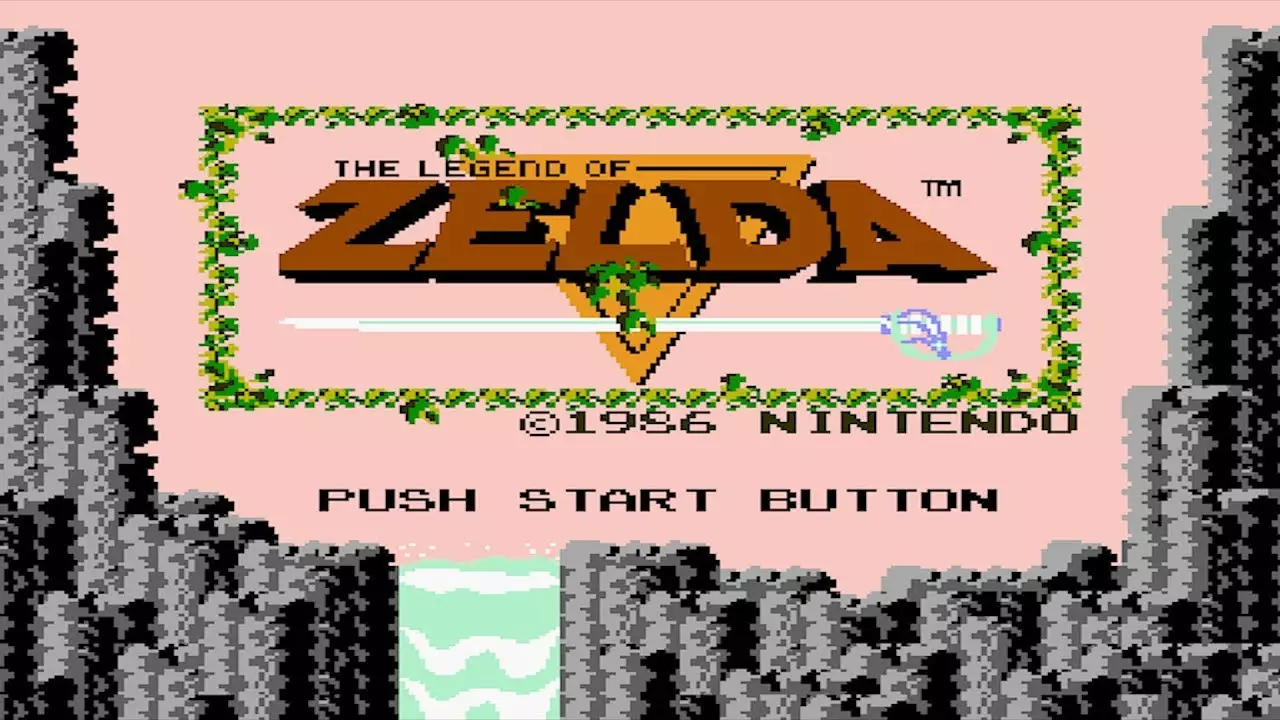 Nintendo
Nintendo

The game that started it all, and the reason so many people were left cold by Skyward Sword. The original NES classic was a mind-blowing open world fantasy adventure that refused to hold players by the hand. You were given a crappy sword and told to head off and fight evil. That was pretty much it.
Advert
You'd die a lot, get lost nearly all the time, and find yourself desperately searching every rock, bush, and wall for secret caves and paths. Granted, it's not aged brilliantly, but the way it encapsulates that feeling of being on your very own adventure and discovering a brave new world for yourself is incredible. It's an approach the franchise would ultimately abandon until 2017, but when they finally returned to it... well, I'm getting ahead of myself.
Phantom Hourglass - DS, 2007
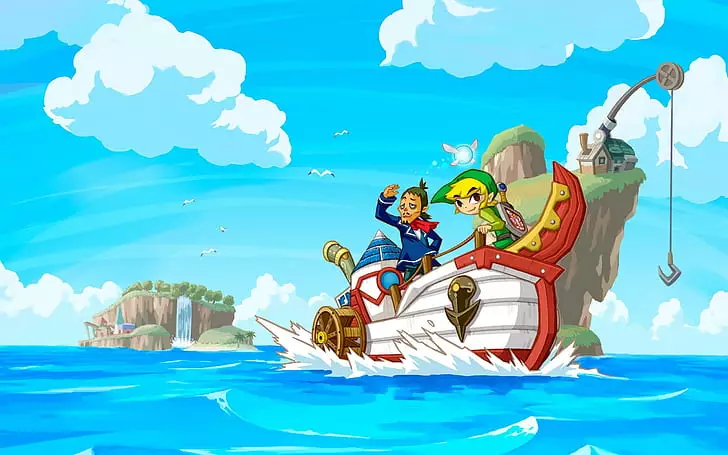 Nintendo
Nintendo

I like Phantom Hourglass a lot, although I'm aware this isn't an opinion shared by many. Link's first DS outing was - and still is - something of a divisive title, with fans unsure about Nintendo's insistence to have link be entirely controlled via the touchscreen.
Advert
Sure, what we got didn't always work, but I found it to be a charming experiment with some really clever ideas, while sailing across an ocean to explore a number of smaller islands helped make the DS game seem a lot larger in scope than it actually was.
Twilight Princess - GameCube/Wii, 2006
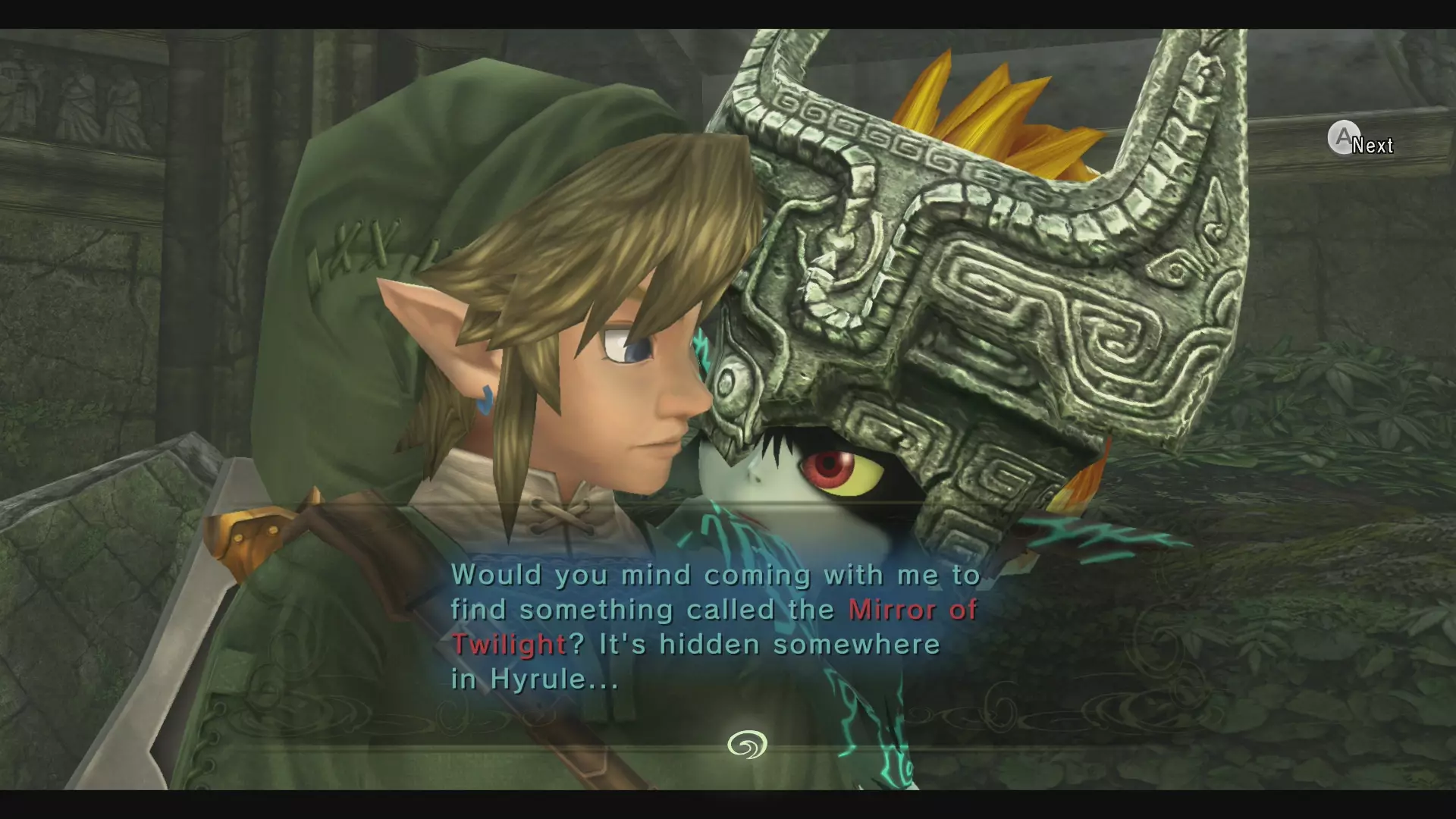 Nintendo
Nintendo

Twilight Princess was exactly the Zelda game fans had been waiting for since Ocarina of Time... for better or worse. Gorgeous and dark, with an epic story and some of the most impressive boss battles the series has ever seen, Twilight Princess remains perhaps the most cinematic Zelda to date.
While there are those who'd class Twilight Princess as an easy top five Zelda title, I feel it's just a little too formulaic and familiar for its own good. Regardless, it's a game made up of stellar moments, beautiful music, and a vast world to explore. Oh, and that final battle is up there with the best the series has to offer.
Oracle Of Seasons/Oracle Of Ages - Game Boy Color, 2001
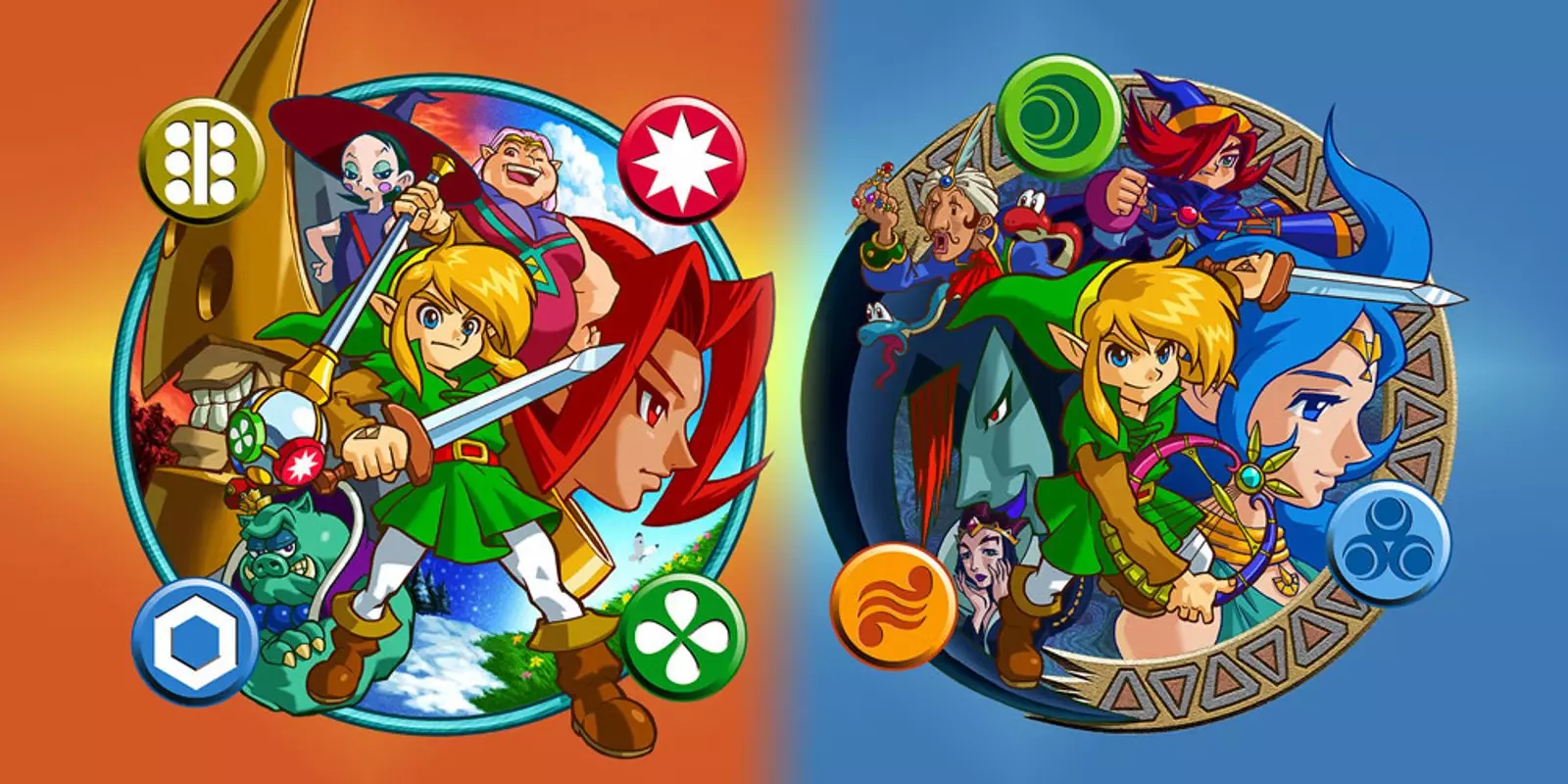 Nintendo
Nintendo

In 2001, Nintendo handed development of Zelda over to Capcom for a pair of handheld Zelda games. Oracle of Seasons and Oracle of Ages were two completely different titles with their own plots, dungeons, bosses, items, and characters, but ultimately connected to form a larger story.
The central gimmick of Seasons - that you could manipulate the weather - made exploring the overworld a real treat, but the game's emphasis on combat over puzzle solving made it the weaker of the two games. You could ride around in a kangaroo's pouch though - a big plus.
Oracle of Ages was very much the more engaging of the two games. Just as A Link to the Past had a dual world mechanic that added an entirely new dimension to exploration, Ages allowed the player to manipulate time to solve puzzles, help villagers, and progress the story.
While playing around with the seasons was certainly a treat, jumping back and forth through time was a much more successful feature that completely changed the way players would interact with and think about the world. Plus, you could still ride around in a kangaroo's pouch.
Minish Cap - Game Boy Advance, 2004
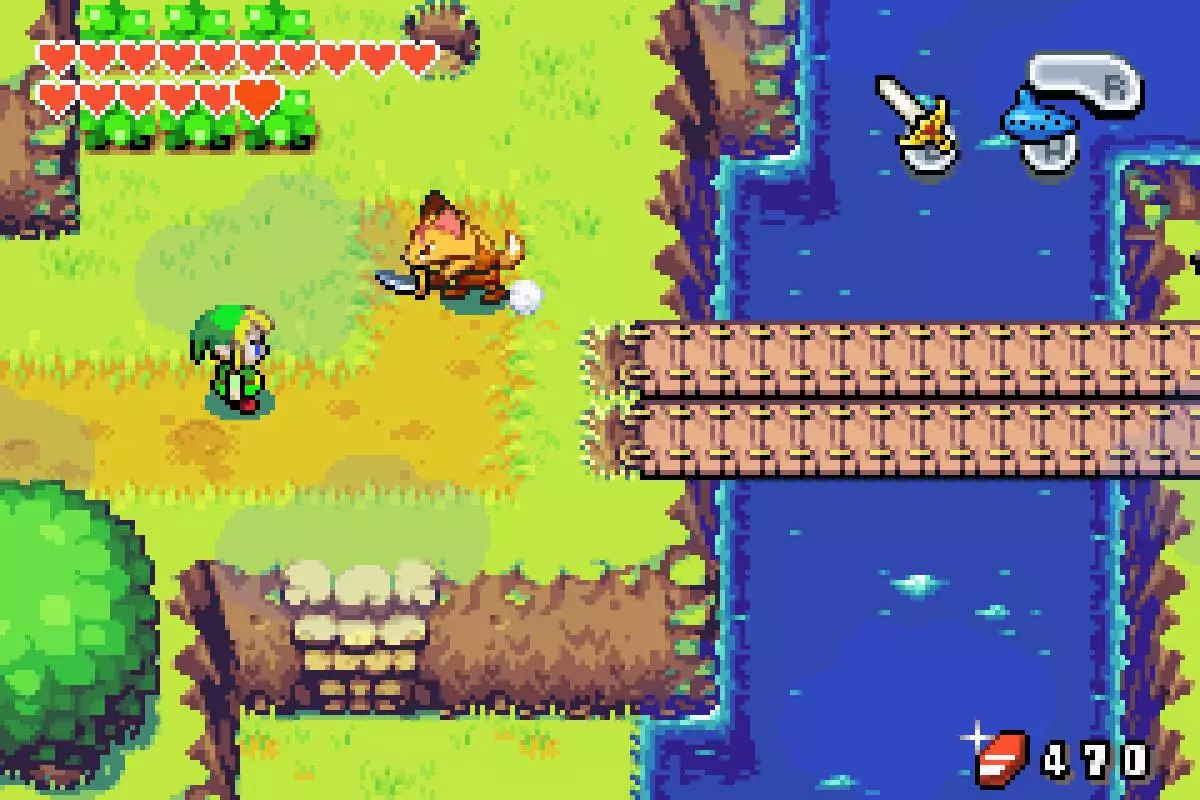 Nintendo
Nintendo

Clearly happy with its work on the Oracle games, Nintendo gave Capcom another crack at Zelda on the Game Boy Advance. Minish Cap is another excellent title that proves Capcom should absolutely be allowed to play in the Zelda universe again, with a phenomenal "shrink Link" gimmick that allowed our green-capped hero to explore Hyrule as if he were Ant Man.
Capcom took this concept and ran with it in a number of smart ways. Regular enemies suddenly became towering boss battles. Puddles became lakes which Link would be unable to traverse. Mountains became... bigger mountains. Just a bright, beautiful, deeply imaginative game.
Link's Awakening - Game Boy, 1993
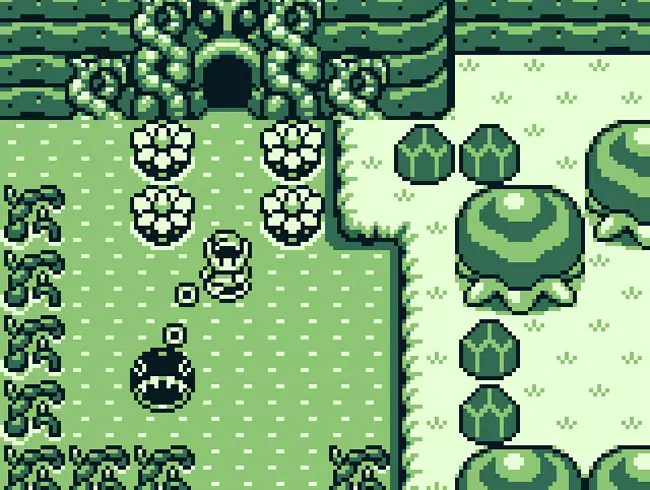 Nintendo
Nintendo

These days it's possible to play games like The Witcher 3: Wild Hunt and Skyrim on a handheld console, and we don't really think twice about it. Back in 1993, though? Being able to play a proper, full-fat Zelda game on the go was an astounding technical feat.
Yes, back in 1993 Zelda games weren't quite as demanding as they are now, but it was still an incredibly novel concept. Of course, Link's Awakening was much more than a novelty - it was a charming, odd, thoroughly inventive Zelda game that managed to all at once feel like both a traditional Zelda and something entirely new.
It'd be remiss of me not to mention the recent Nintendo Switch remake. While utterly gorgeous, it's important to note that Nintendo didn't change a stitch of gameplay. A testament to the timeless, compact design of the original.
Majora's Mask - N64, 2000
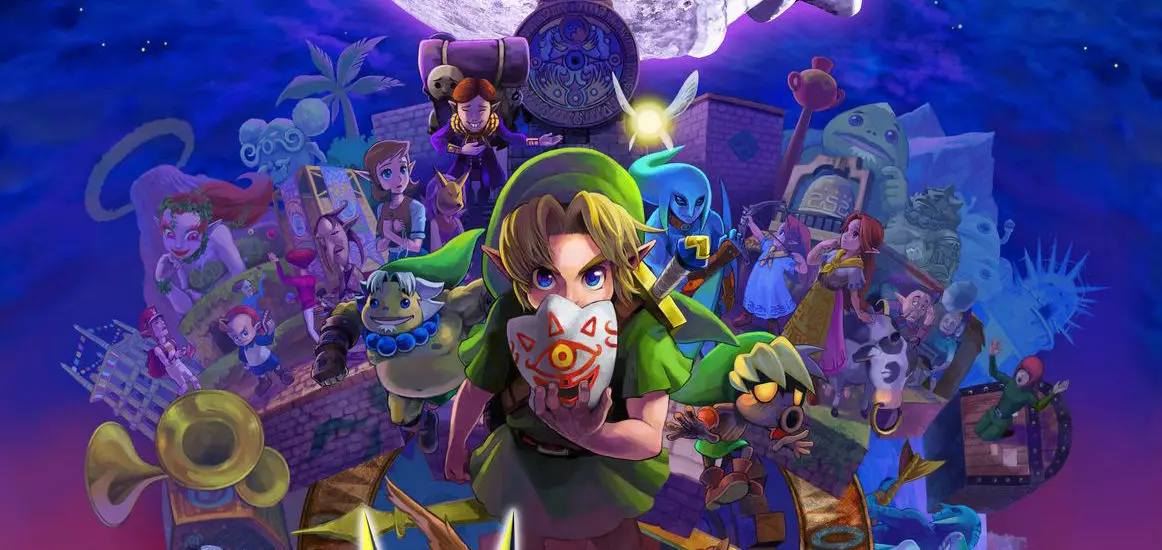 Nintendo
Nintendo

Calling Majora's Mask Zelda for emos might sound a touch reductive... but that's pretty much exactly what it is. It might not be the most approachable game for newcomers, but those who allow themselves the time to settle into its unique rhythms will find the weirdest, saddest, and arguably deepest Zelda game out there.
I sometimes find it a little hard to believe that this was the direct sequel to Ocarina of Time, but doesn't that just speak volumes about the risks Nintendo is willing to take with this franchise? A game that combines the heartbreaking inevitability of endings with a hand that lives in a toilet and comes out at night to ask for bog roll. Genius.
A Link Between Worlds - 3DS, 2013
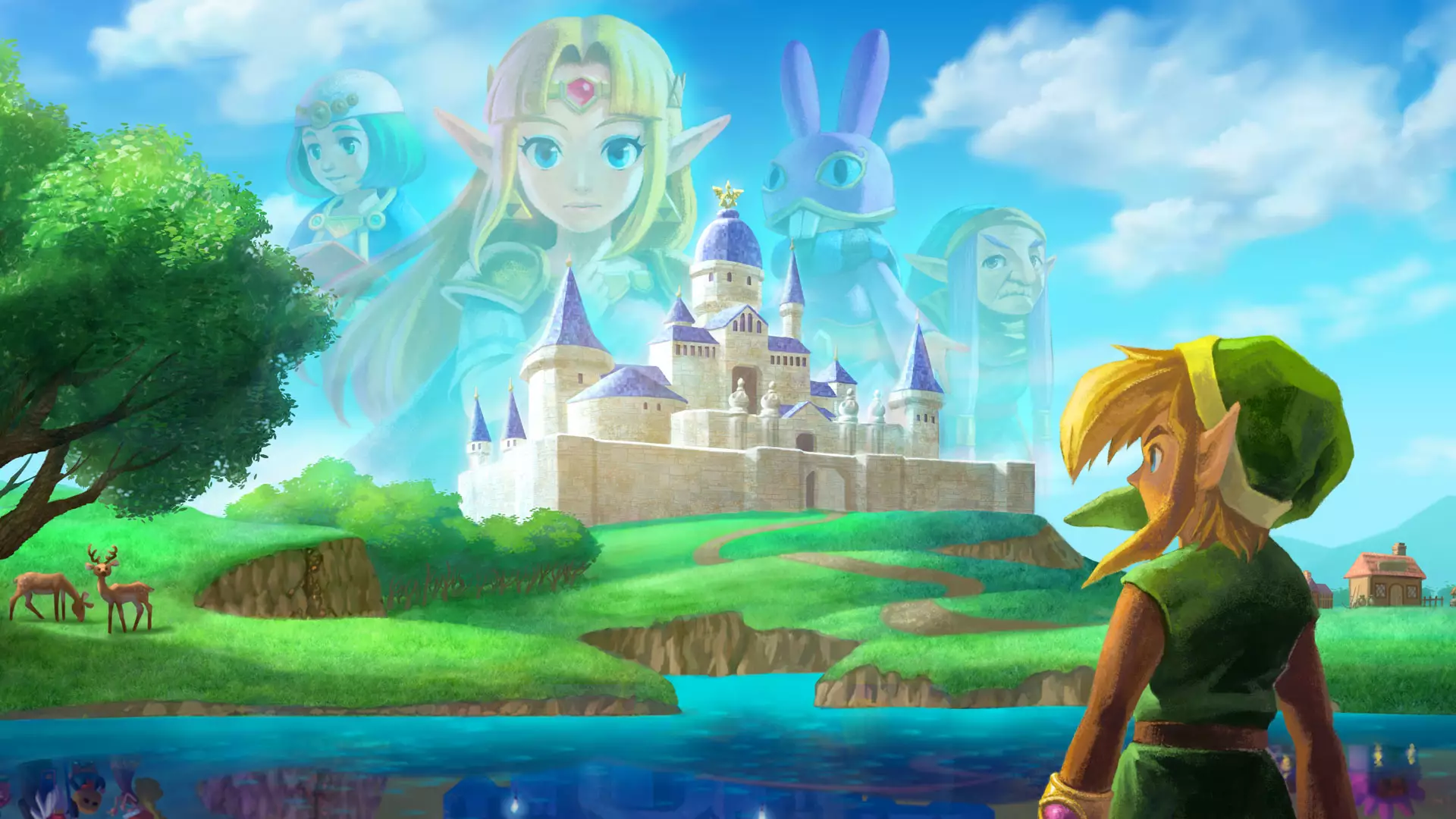 Nintendo
Nintendo

Nintendo finally remembered it could trust players to make their own mistakes and find their own way, and the resulting game was a beautiful blast of fresh air that put Zelda back on track. A Link Between Worlds turned an increasingly tired formula on its head by revisiting the spirit of the original NES game.
For the first time in decades we were given the ability to explore freely and conquer dungeons in any order, while bringing back the world of SNES classic A Link to the Past lent the game a pleasing air of nostalgia. Oh, and you can merge with walls in a cool Paper Mario-style feature that completely changed how we interacted with the top-down world. Outstanding stuff.
Wind Waker - GameCube, 2002
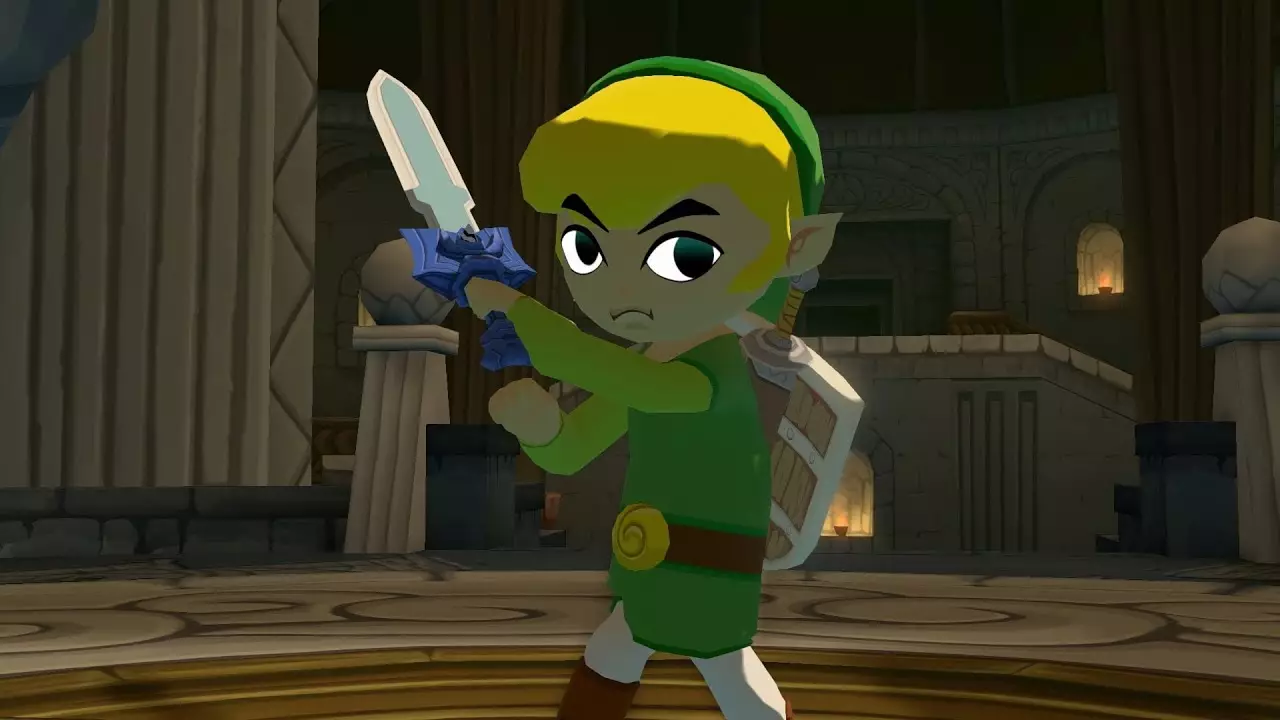
Wind Waker's greatest strength, arguably, is that it never tried to be Ocarina of Time. While fans hungered for a realistic and "mature" Zelda game, Nintendo went in completely the opposite direction. It shouldn't have worked, but the result was a breathtakingly gorgeous game that feels one of the purest expressions of what Zelda is meant to be.
Taking place across a vast ocean that you're pretty much free to explore however you want, Wind Waker is all about discovery and adventure. Submarines with hidden treasure lurk just below the surface of the waves, ominous watchtowers loom in the distance, and dozens of tiny little islands that cling to the middle of a rainy sea all hide their own secrets and dangers.
It might be on the easy side, and certainly isn't one of the longer Zelda games... but Wind Waker is a charming, gripping, emotionally stirring piece of work. One that still looks absolutely fantastic today thanks to the cel-shaded visuals that a bunch of Very Silly People thought were a bad idea at the time.
Ocarina of Time - N64, 1998
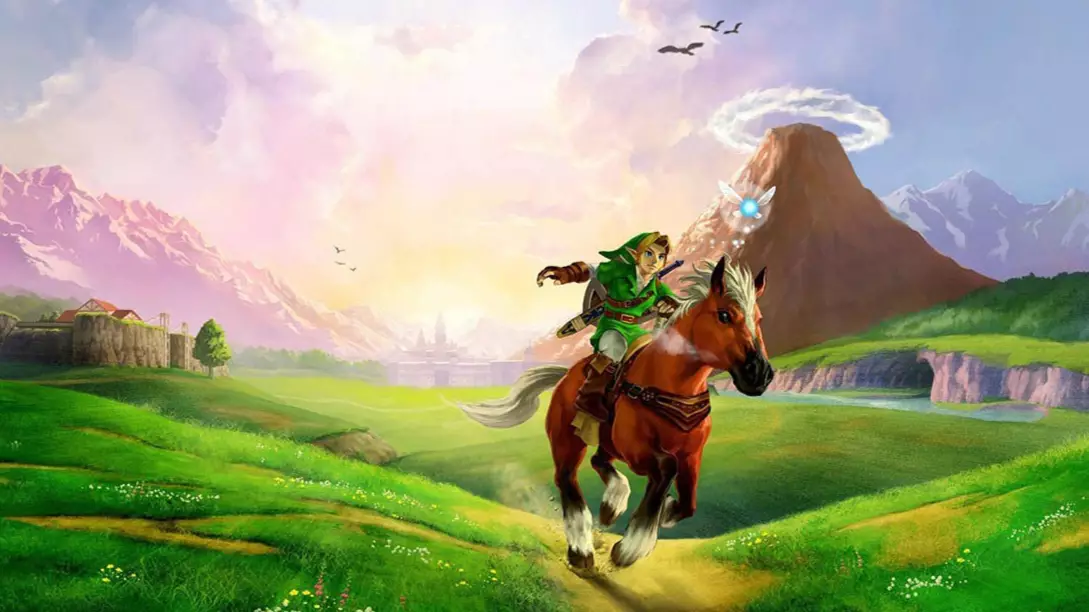 The Legend of Zelda: Ocarina of Time
The Legend of Zelda: Ocarina of Time

What can I actually say about Ocarina of Time that hasn't already been said a million times? This was the game that turned an entire generation of kids onto gaming. This was the Zelda that catapulted the franchise into the third dimension, sending shockwaves through the industry.
To this day, it remains one of the highest-rated, most warmly-remembered, and unifying games of all time. Whether you stan Xbox, Nintendo, or Sony these days, we can all agree Ocarina is a masterpiece. From leaving Kokiri Forest as a child to plunging the Master Sword into Ganon's ugly pig face as an adult, Nintendo took us on an epic journey full of memorable characters, terrifying monsters, and jaw-dropping moments.
Even screwing around with the iron boots in the water temple for what felt like several hundred years couldn't derail the experience... now that's saying something.
A Link to the Past - SNES, 1991
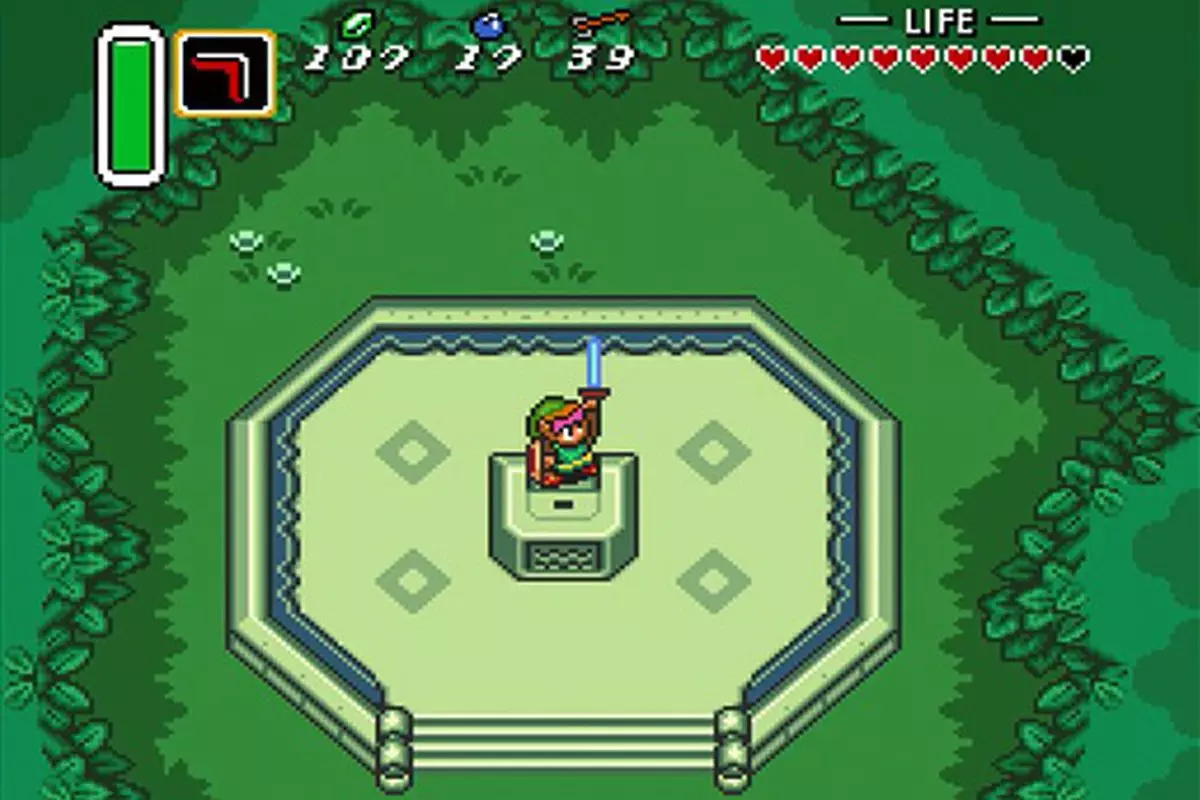 The Legend of Zelda: A Link to the Past screenshot
The Legend of Zelda: A Link to the Past screenshot

Ocarina of Time might be the game that's better-remembered by the majority, but it was A Link to the Past that established nearly all of the elements we know from Link's first N64 outing. A dual world system, the Master Sword, and a more focused item-based approach to progression and dungeon exploration were all introduced in this SNES classic.
A Link to the Past also has the edge on Ocarina in that it's aged a lot better. The brightly-coloured 16-bit sprites look and feel a heck of a lot smoother than the creaky polygons of the N64 gem, while navigating menus, exploring the world, and doing battle with the forces of evil all feel a lot more streamlined.
Both games deserve a spot in the video game hall of fame, of course, but A Link to the Past's influence on the franchise going forward can't be overstated. If you're looking for a classic Zelda experience, this really is the definitive example.
Breath of the Wild - Wii U/Switch, 2017
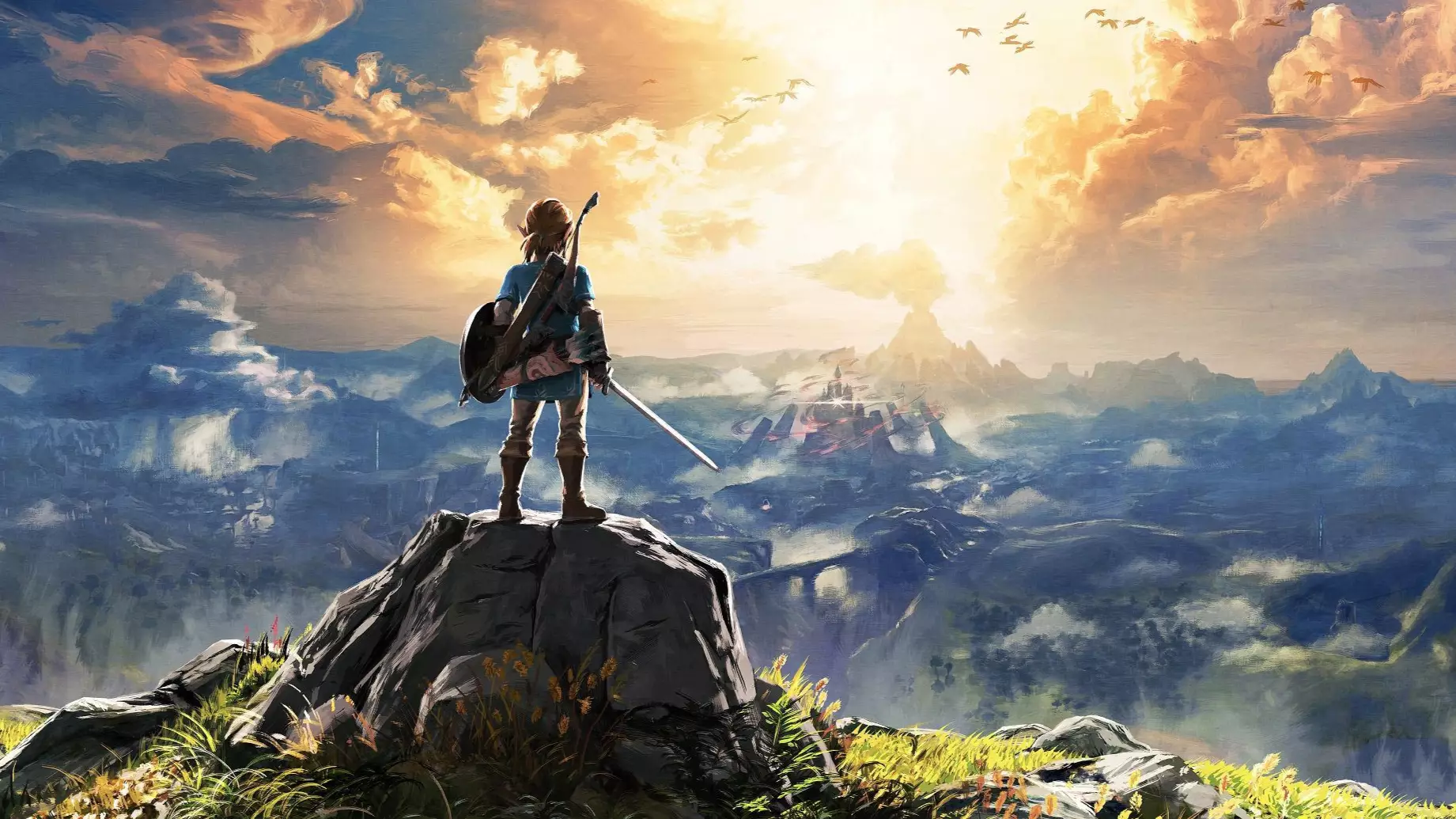 The Legend of Zelda: Breath of the Wild
The Legend of Zelda: Breath of the Wild

A Link to the Past is wonderful because it's the definitive traditional Zelda experience. Breath of the Wild is incredible because it's the complete opposite. At a time where Zelda so desperately needed to rewrite the rulebook, Nintendo decided to completely tear it up and start again. The resulting game was not only the best title of its year, but arguably the best game of the last decade.
Guiding the player between dungeons, AI companions, and paths that keep you from moving forward until you find the right item? All a thing of the past. Breath of the Wild gives you all the tools you need within the first 30 minutes, and then lets you loose on a truly remarkable open world - one that's quite literally open in a way we've never really seen in a game before.
There are no waypoints to tell you where to go or obtrusive cutscenes dogging your every step. The only thing guiding you forward is your own sense of curiosity and wonder. Start fires, climb mountains, cross lakes, glide through the air, pick fights with savage monsters, and fall to your death when a goat knocks you off a cliff - Breath of the Wild feels truly alive. I can't actually think about the upcoming sequel without needing to lie down for a little while.
Featured Image Credit: NintendoTopics: zelda, Nintendo, The Legend of Zelda